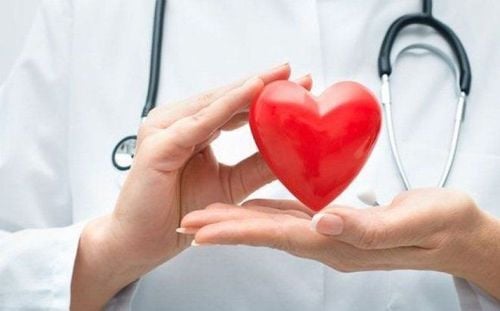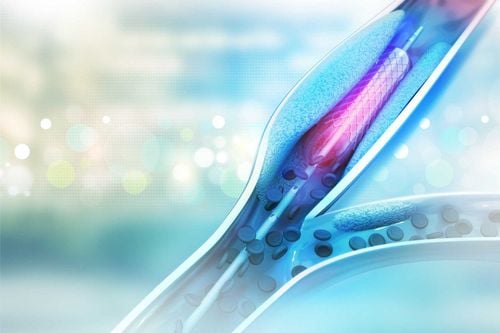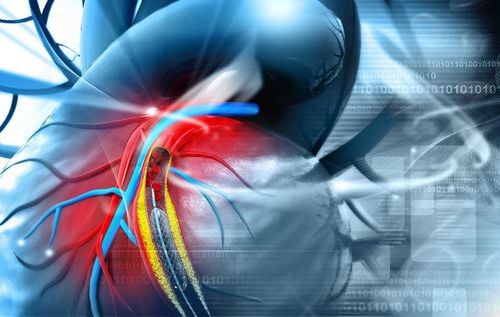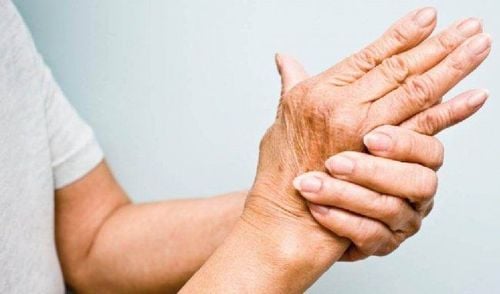This is an automatically translated article.
The article is written by Dr., Doctor Nguyen Hong Son - Department of Examination and Internal Medicine, Vinmec Times City International General HospitalToday cardiovascular disease is the leading cause of death in developed countries, yet less than 50% of women are aware that cardiovascular disease is the biggest threat to their health. In addition, not all doctors think about cardiovascular causes when they see female patients. Therefore, learning about the unique aspects of cardiovascular disease in women will help us better diagnose and treat these common problems, and guide patients appropriately.
1. Is cardiovascular disease a primary health concern in women?
Right. The incidence of coronary heart disease in men at a given age will be similar to the incidence rate in older women over 10 years. However, the number of cases is higher in older women than in younger men.
2. Are the symptoms of a female patient with myocardial insufficiency similar to that of a male patient?
No. Female patients are more likely to delay seeking medical attention, so symptoms often persist, perhaps in part because women fail to recognize that these symptoms are related to heart disease. In addition, female patients often come to the clinic because of back, neck or jaw pain; difficulty breathing, nausea, or vomiting; indigestion, loss of appetite; muscle fatigue or weakness; five chickens; nervous palpitations ; while men often come to the doctor because of typical angina symptoms. When a female patient presents with chest pain, it is more likely that this pain occurs when the patient is not exerting herself.3. Are women at risk of sudden death from ischemic heart disease?
Have. However, sudden cardiac death is more common in men, but female patients who have experienced cardiac arrest are more likely to die than the same case in men.
Đột tử vì bệnh tim thường xảy ra ở nam giới hơn nữ giới
4. What are the risk factors for cardiovascular disease in women?
Cardiovascular risk factors are similar in both sexes: smoking, central obesity (abdominal obesity), diabetes, hyperlipidemia, high blood pressure, family history of heart disease. However, these risk factors are not the same between men and women.
5. Are there any cardiovascular risk factors more associated with cardiovascular disease in women than in men?
Have. In women, elevated triglycerides have a higher predictive value for coronary heart disease than in men. In addition, female diabetic patients also have a higher risk of cardiovascular disease than male diabetic patients. Therefore, female patients with diabetes should be actively adjusted for risk factors.
6. Is the treatment of myocardial infarction in women the same as in men?
Yes, the same treatment. Beta-blockers, angiotensin receptor blockers, statins, and aspirin are equally beneficial in male and female patients.

Sử dụng thuốc ức chế beta, statin, aspirin để điều trị nhồi máu cơ tim
7. Should women without cardiovascular disease take aspirin to prevent cardiovascular disease?
Aspirin at a dose of 75-325 mg daily is recommended in female patients at high risk for cardiovascular disease, already has atherosclerosis (class I recommendation), Aspirin at a dose of 81 mg daily or 100 mg every other day. should also be considered for: female patients >65 years of age when blood pressure is controlled and the prevention of ischemic stroke and myocardial infarction is likely to outweigh the bleeding risk. gastrointestinal and hemorrhagic stroke (class IIa recommendation) and for female patients <65 years of age when the benefits of preventing ischemic stroke outweigh the adverse effects of treatment (recommendation IIb). ).
8. Should women without cardiovascular disease take estrogen after menopause to prevent cardiovascular disease?
No. Hormone replacement therapy (using estrogens or selective estrogen receptor modulators) is not recommended for the prevention of coronary heart disease (class III recommendation).
9. Are antioxidants beneficial in preventing coronary heart disease?
No. There is no evidence to support the benefits of taking antioxidant vitamins (vitamins E, C, B) and folate for women and men.
10. Is the prognosis after myocardial infarction in female patients the same as in men?
No. The mortality rate after myocardial infarction is higher in women than in men. In addition, women tend to have recurrent myocardial infarction and heart failure, and are more likely to exhibit clinically significant depression than men after myocardial infarction.
When detecting symptoms affecting heart rate and health, patients need to visit medical facilities for early diagnosis and treatment. In addition, regular health checkups help detect diseases early, thereby planning treatment to achieve optimal results. Currently, Vinmec International General Hospital has general health checkup packages suitable for each age, gender and individual needs of customers with a reasonable price policy, including:
Health checkup package diamond general health checkup package Vip general health checkup special health checkup package Comprehensive general health checkup package standard general health checkup The patient's examination results will be returned to your home. After receiving the results of the general health examination, if you detect diseases that require intensive examination and treatment, you can use services from other specialties right at the Hospital with quality treatment and services. outstanding customer service.
Please dial HOTLINE for more information or register for an appointment HERE. Download MyVinmec app to make appointments faster and to manage your bookings easily.













